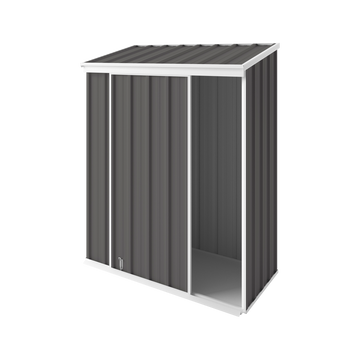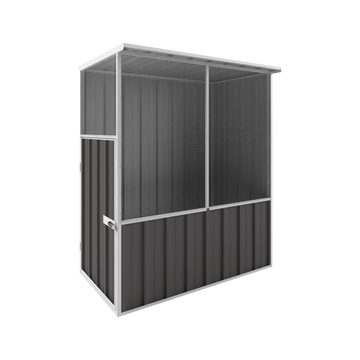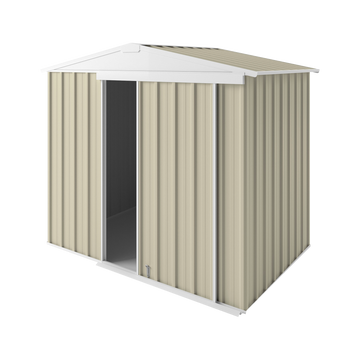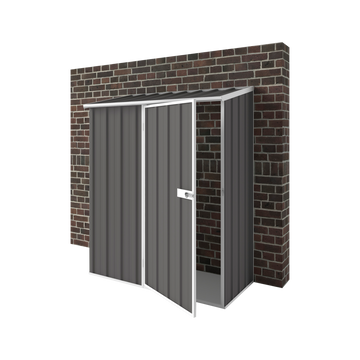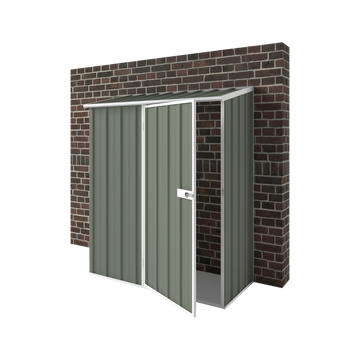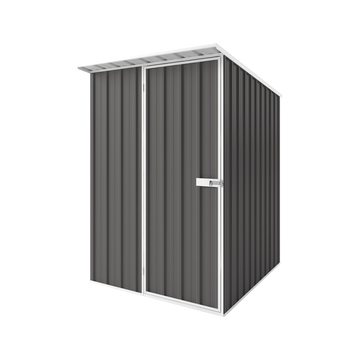Whether it’s a DIY shed, a storage shed, or a workshop shed, maintenance needs to be done regularly to ensure that the shed will last long and your equipment and materials are safe. Since sheds are made of different materials, it is safe to say that maintenance is different for each shed, but a few things should be the same. Climate in the different regions also differ, so this should have been a consideration when you were still deciding what shed to purchase.
General Tips for Maintaining Sheds
Shed upkeep relies heavily on the climate of your region. If your region receives a lot of rain, waterproofing should be your top priority. If your region is humid and dry, ventilation should always be considered. Regular and preventive maintenance should be done to ensure you won’t lose your shed or end up spending more later.
Here are a few general tips for you:
Paint
Timber sheds should be painted immediately after installation and not later than 60 days after. Exterior primer should also be used before painting to protect the timber structure against rot and decay. This will also make it resistant to termites and other animals. An acrylic latex paint should be used on the exterior, especially on the exposed edges. Steel doors should be painted, too. Timber stain may also be used to keep the timber preserved for at least a year.
Air
Keep your storage shed well-ventilated. Runners should be placed under your structure’s floor to elevate it and allow air circulation. Check the runners regularly and replace if necessary. The outside of the shed should also be clean from grasses, and you should not stack things outside and on the walls of the shed. This will prevent proper air circulation, making your shed prone to moisture and rot. Enough windows and doors should be installed and working.
Waterproofing
Australia’s weather is sometimes extreme, bringing rain and snow unexpectedly. Regardless of whether you are using timber, plastic or steel, you need to make sure that your storage shed has no cracks. If you see any crack, you may use epoxy and apply a coat of waterproofing paint. Check the putty in your windows and apply a new putty or silicone. Water may drip inside your workshop shed from the cracks. Over your door, you may also add a rain protector to keep water out. Check the roof and insulate any cracks, too.
Cleaning
You should treat the shed as an extension of your home; thus, it should be kept tidy at all times. Thorough cleaning should be done once or twice a year, depending on how you use your shed. If your shed is clean, you can easily see issues and fix them before it gets too late. This also makes it easier for you to find things you need when you need them.
If you are using your shed as a workshop, you need to hide your tools and keep an inventory to ensure that every tool is accounted for. Chemicals and other dangerous materials and equipment should always be stored away and kept away from children. Leaks should also be cleaned and containers with leaks should be disposed of immediately.
If you are using the shed as a storage shed, make sure that tools, bicycles, and lawnmowers are wiped and cleaned before being stored inside the shed. This will prevent unwanted fungi, mold, dirt, and grime from spreading inside the shed. This will make cleaning the inside of the shed easier. If you have small items like screws, nails and bits, put them in separate containers.
Visit the roof of your storage shed and remove leaves and debris. Do it more often when it is autumn or every after a storm. This will prevent dirt from accumulating and rainwater from collecting. Remove moss on the roof because this absorbs water. This may cause steel to rust.
Look inside the shed, too, and look for any water damage. If there is water damage inside, look for the leak source and replace it immediately. You may also install a gutter for your shed to capture rain and prevent it from pooling on the edges.
Traps
Unwanted animals may decide to visit your shed and make it their permanent home. Even if you keep your shed tidy and clean, mice, cockroaches, ants, and termites may still inhabit it. In this regard, you may place traps inside and outside your structure. Ensure, though, that the children will not be able to get it, especially if it is poison.
Insulation
Insulation helps the structure become more fire-resistant and also keeps it cool during the summer months and warm enough during the winter months. Insulation is very important if you plan to spend a lot of time inside your storage shed.
Security
If you do not want your possessions to be stolen, you need to make sure you have a working lock. Sheds are often burglarised because of the lack of security. Windows should also be locked, and damaged frames should be replaced. Check for any misaligned panels and rectify them because this affects the structure’s security and integrity.
Know when to let go
You should not try salvaging parts of timber or the entire shed even when it is no longer safe. Trying to save money on a few rotting boards might prove to be costlier in the future when an accident happens.
Sheds are investments that should see you through many years. They are now part of the backyard landscape and are often used for various reasons like storage, greenhouse, and workshop rooms.
If you are planning to buy a storage shed or a workshop that is both easy to assemble and maintain, EasyShed has the best options for you. At EasyShed, we consider the Australian climate in the manufacture of our storage sheds. You can also easily assemble your DIY shed using our EasyShed Videos, which requires only a power drill. You can easily customise your own shed to match your style. Free delivery is offered on orders over $500, as well as a lifetime shed warranty for all purchases. Contact us today!



